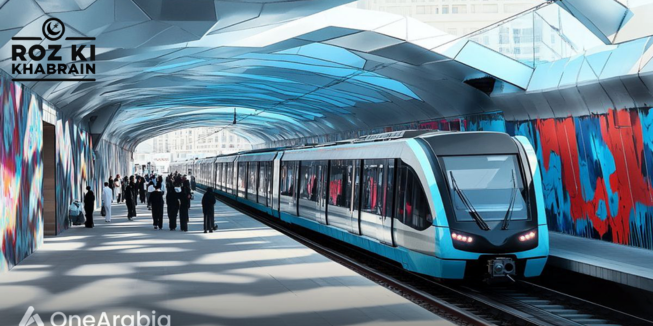The Riyadh Metro is set to launch its driverless service on November 27, with the first phase featuring three operational lines. The remaining three lines are expected to begin service by mid-December.
Recognized as the longest driverless metro system in the world, the Riyadh Metro aims to reduce reliance on personal vehicles and support Riyadh’s growth as a global trade and business hub, in line with Saudi Arabia’s economic diversification goals.
The system will also incorporate sustainability features, with solar panels installed at stations and depots providing 20% of the energy for essential systems. This is part of a broader effort to ensure the metro project is energy-efficient and environmentally friendly.
The initial routes, launching on November 27, will connect key areas including Al-Orouba to Batha, King Khalid International Airport Road, and the junction of Abdulrahman Bin Auf Street and Sheikh Hassan Bin Hussein Street. Additional lines, including those along King Abdullah Road, Al-Madina, and King Abdulaziz Road, are slated for mid-December.
The Riyadh Metro, which carries a $22.5 billion price tag, received approval from the Saudi Council of Ministers in April 2012 and was awarded to three international consortiums in 2013. Despite facing delays, particularly due to the COVID-19 pandemic, the project is now nearing completion.
Ticket prices and discount packages are expected to be announced soon, with authorities urging the operating company to offer competitive fares to attract more passengers.
The metro system is designed with sustainable technologies, including energy-efficient trains, regenerative braking systems, and the use of renewable energy. It will be powered entirely by renewable energy sources, offering a greener transportation option for the city.
The upcoming launch marks a significant milestone, 12 years after the project was first approved, and represents a major step forward for Riyadh’s public transportation infrastructure.




